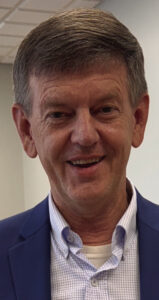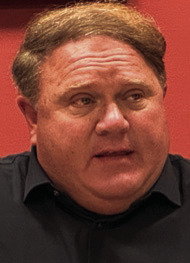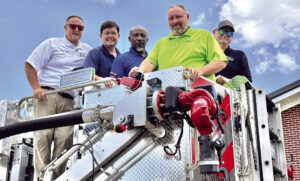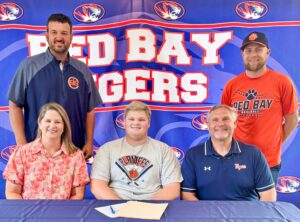Political will the missing link in economic development
By By Buddy Bynum / editor
Jan. 4, 2004
Economic development professionals have long believed the East Mississippi-West Alabama corridor has huge potential for attracting major global manufacturing companies that can generate good-paying jobs.
Great transportation systems, a solid work ethic, excellent education and training institutions, mega-acreage for industrial expansion at reasonable costs and low taxes are all good reasons for prospects to look here.
Looking at a map, you can view this corridor from two different perspectives: one vertical, say from Corinth to the Mobile, Ala., environs; the other horizontal, say from Forest through Meridian to the Tuscaloosa, Ala., environs. Either could be a welcome addition in an area where the economy has been very sluggish.
The missing link is the political will to do what is necessary to get the job done.
While strong behind the scenes efforts are currently being made, we've been fiddling around the edges of industrial development for years.
Just look at how long it is taking to get water and sewer service to the Interstate 20/59 Industrial Park. The East Mississippi Business Development Corp. and Lauderdale County, which bought the land in 2000, and the city of Meridian, which is responsible for providing the water and sewer service, obviously have not shared the same sense of urgency in developing the industrial park.
Site selection consultants for global manufacturers see such basic infrastructure as absolutely essential and are reluctant to recommend a site that does not have it in place.
As a former head of the Mississippi Development Authority, one who rose through the ranks of local economic development, once told me, site selection consultants are not visionaries you cannot simply show them a map of where the new water tower or rail links are going to be; they want to see these features in place.
Best hope
My own personal belief, after years of working in and around the economic development field, was recently confirmed by discussions with several experts: Manufacturing jobs, not retail jobs, offer this area's best hope for improving the quality of life.
Manufacturing creates products that did not exist before and by so doing helps create new wealth, both for the company and the employee. Retail jobs are all too often dead-end, low-paying, low benefits jobs.
While some local officials tout the benefits of retail seemingly to the exclusion of manufacturing retail simply shuffles money around the economic spectrum without actually creating anything new.
In the city of Meridian's case, for example, the sales taxes produced by such retail establishments as Wal-Mart and Sam's Club are a godsend because the money provides the means to operate city government.
That is a difference between the retail and manufacturing sectors. While manufacturing facilities pay taxes, too, they also generally provide better-paying jobs on which people, not government, can build their lives and have more money to spend.
Perhaps more than anything else, people who live in East Mississippi and West Alabama need reassurance that our elected officials are truly interested in us.
There is hope on the horizon in the form of new leadership at the state level. I share the belief that Mississippi Gov.-elect Haley Barbour and Alabama Gov. Bob Riley can fill in the missing link by providing the political will that can prepare the East Mississippi-West Alabama corridor for development.
Crossing geographic and political boundaries is a necessary next step. That's why I'm looking forward to the second annual summit of the Commission on the Future of East Mississippi and West Alabama, which is scheduled Feb. 6 at the University of West Alabama. The first one was held at MSU-Meridian Campus last year.
Cooperative venture
Riley and Barbour are expected to jointly address bi-state development opportunities, including the proposed major bi-state industrial park initiated last year.
To be successful, this new cooperative concept, regional in scope, will take a total buy-in from local, state and federal officials and from area non-profits. The summit, for example, is being funded in part by grants from The Phil Hardin Foundation and The Riley Foundation.
It seems to me that we now have an opportunity to get local, state, federal and private interests from two states reading from the same development page. That would be different and constructive.
Parking garages and arts centers can be wonderful complements to efforts to improve the local quality of life. But over the long term, in and of themselves, they will not create the new jobs or the new wealth that comes with landing new manufacturing operations.
The commission's purposes include assessing conditions, identifying key issues, recommending strategies and communicating findings to the region in what it calls an inclusive process.
These are noble purposes, and it's time to get on with the job.













